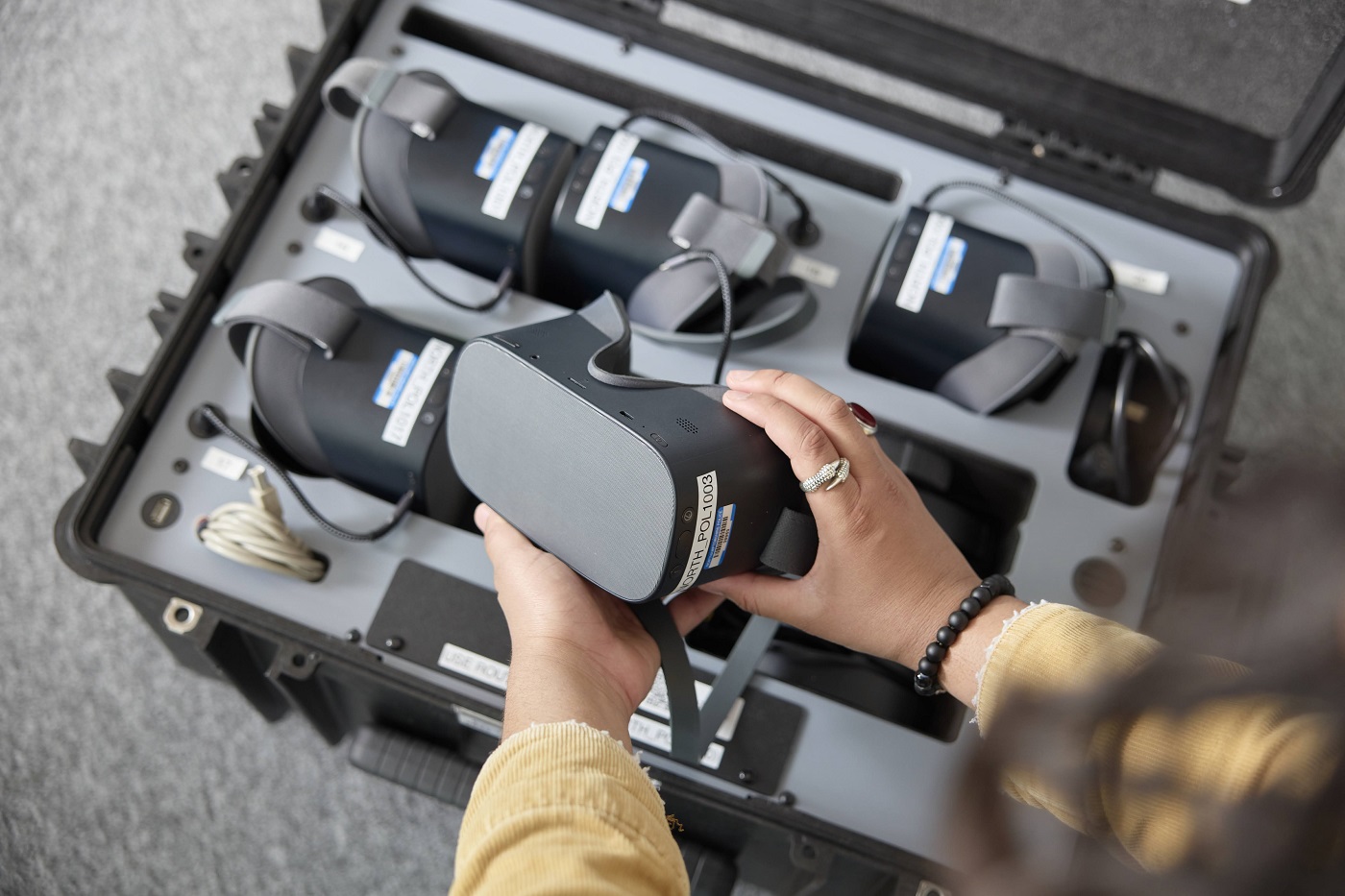XR Chit Chat
Date 24 July 2024
24.07.2024This informal chit-chat between Senior Lecturers at UON looked into how XR is becoming more prominent with their respective fields of Education and Games Design.

On 11th June 2024, the Centre for Active Digital Education’s Extended Reality Special Interest Group held an informal online ‘Chit Chat’ where colleagues from across the university were invited to join and share examples of best practice and what was going well using XR tools as well as to discuss some common challenges faced and how these might be approached.
The session was led by three members of CADE, Simon Chapman and Devon Rossetti, Senior Lecturers in Education and David Nicolls, Senior Lecturer in Games Programming and Games Design, who came to discuss their experiences of using XR tools in their own teaching and learning and research.
Wide and varied uses of XR were discussed. Devon noted how within her current PhD research, she has used immersive floors, AR resources, Apps, Physical Objects and scannable objects with students at UON as well as children in local primary schools as tools to make learning active rather than passive.
Simon outlined how the use of XR tools within Primary Education is a developing area and subsequently, it is our responsibility to develop our students’ and educators’ confidence in embedding these tools within their practice as they open up new, engaging opportunities for learners across subject areas of the Primary National curriculum by allowing children to experience things within their classrooms that they cannot physically get to such as visiting The Great Wall of China, seeing dinosaurs or exploring States of Matter through immersive and non-immersive Virtual Reality.
David discussed how within his field, the use of spatial computing and overlaying in real worlds helps learners develop new skills and experience things in real life scenarios where mistakes can be made safely. Within his role, he works on how to develop ‘serious game’ apps – educational games that educate people on topics such as driving a car, preparing to go to the gym or having challenging conversations.
In all cases, the use of XR tools were embedded within aspects of different modules and continue to be developed through developing Simulation-based resources, but the discussion still demonstrated that there were many challenges and work to be done in embedding XR. Advantages of using XR tools were clearly outlined yet similar barriers across programme to embedding these tools were also highlighted including challenges in terms of time to setting up equipment, expense, confidence of staff and how knowledge exchange is essential as educators don’t know what is available until they know.
It was discussed that there are several ways these challenges are being addressed, one being the importance of research and sharing findings; Simon and Devon outlined how they are currently researching primary educators’ perceptions on using XR within their teaching and learning; the findings of which will be presented at the BERA Conference 2024. Additionally, it was also discussed how using resources that require minimal set up such as iPads and Smart Phones were useful but the significance of upskilling colleagues through CPD and sharing of knowledge was a great way in helping use catch up with developing digital literacy with the events of CADE being directly referenced.
The discussion lasted for around 40 minutes and the video can be accessed on the following link.
A special mention must also go to Learning Technologist, Tim Guyett, who joined Simon, Devon and David to find out more about XR from across the university.
